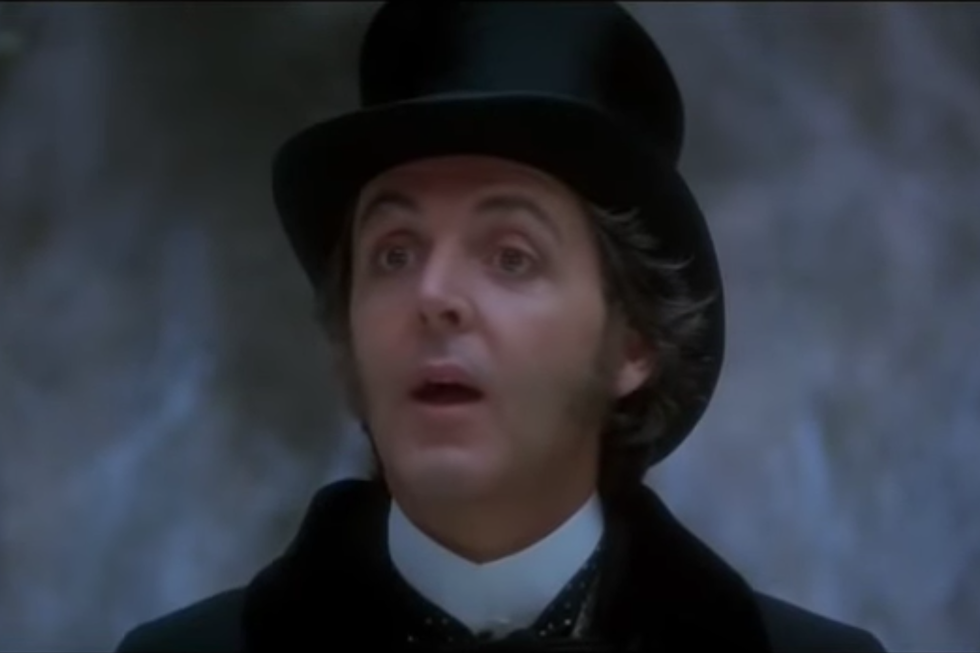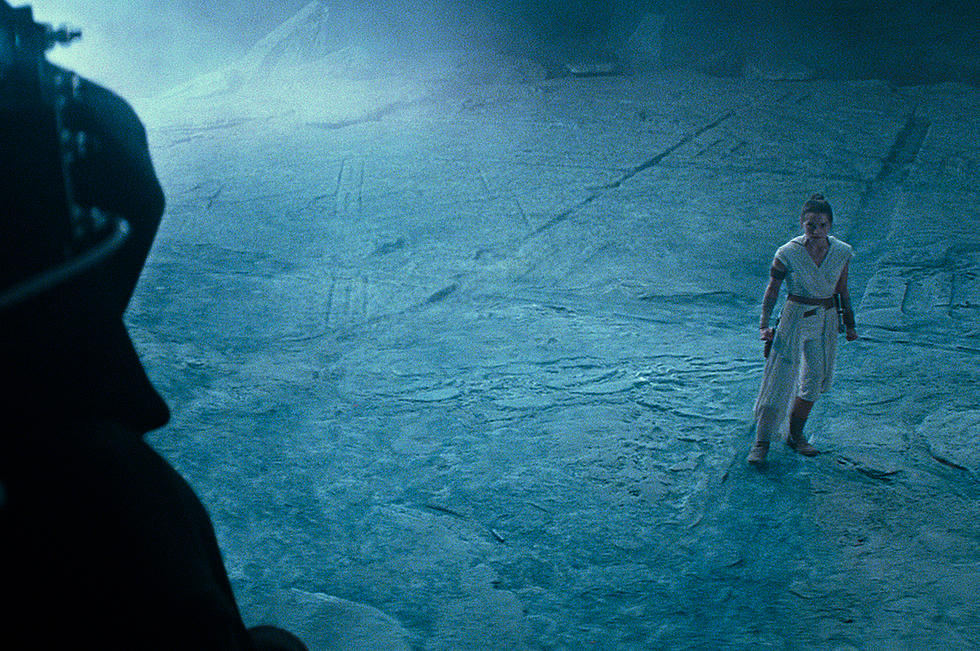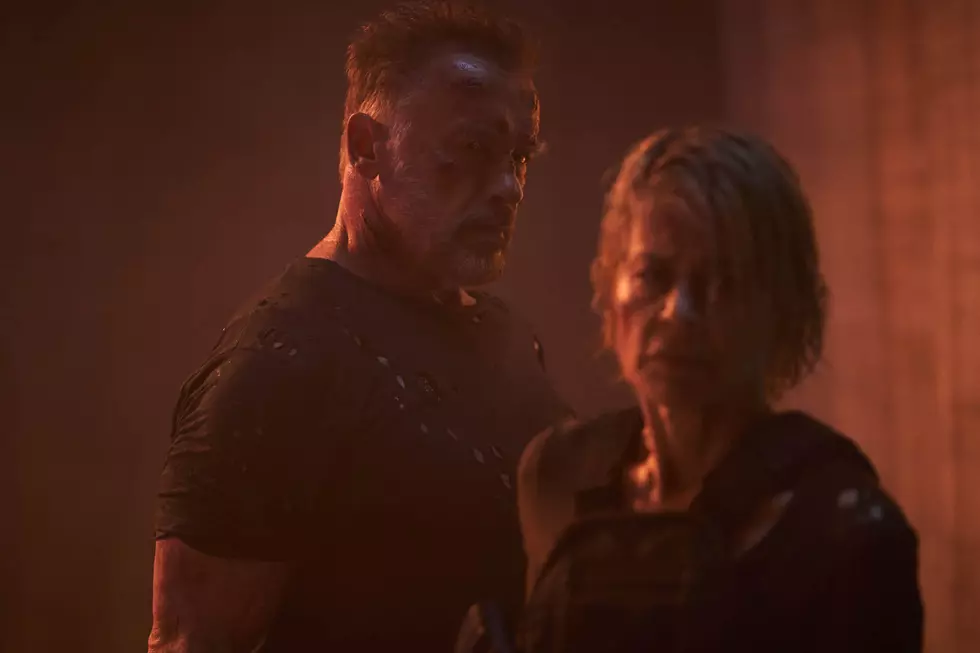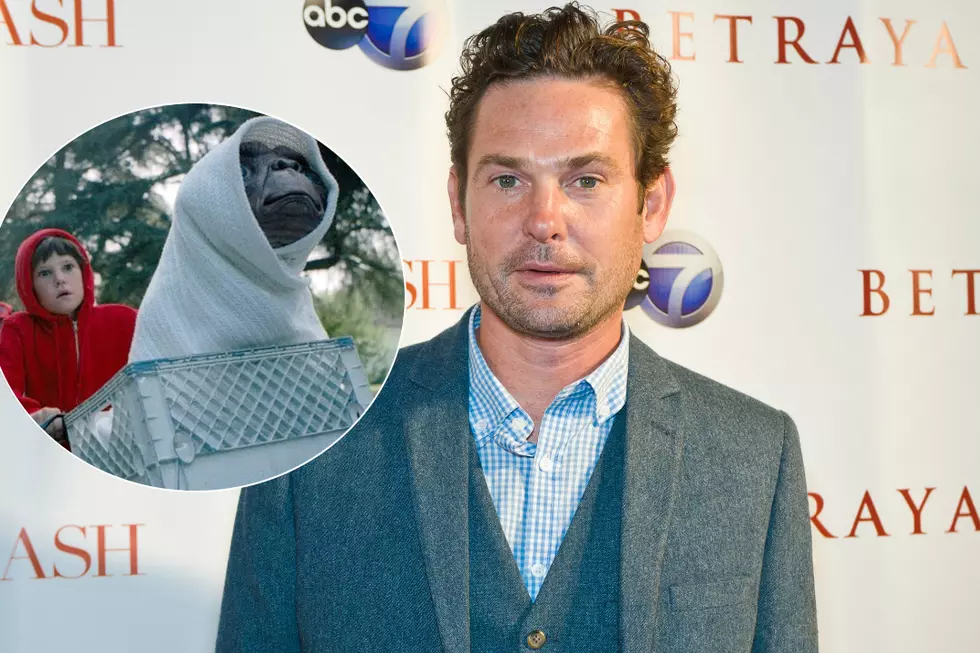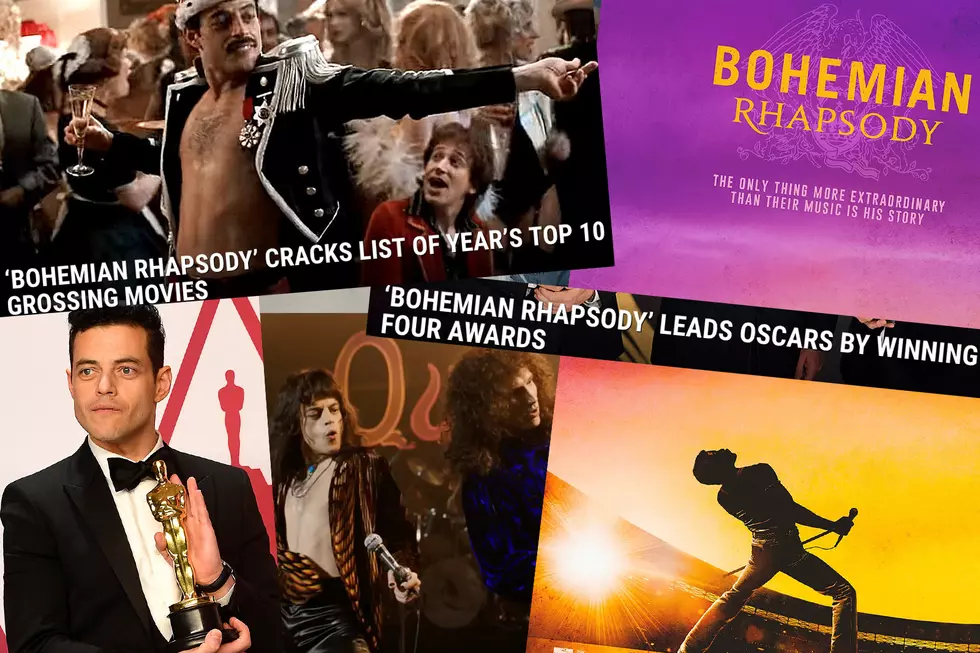
‘Bohemian Rhapsody': One Year, Four Oscars and $900 Million Later
It took eight years of trials and tribulations before Bohemian Rhapsody, Queen’s biopic about late singer Freddie Mercury, completed its journey from concept to hit screens in 2018. No one could have predicted the production issues it was to encounter – but equally, no one could have predicted its explosive success when it finally arrived.
The project began around 2010, when Queen guitarist Brian May started talking about making a movie centered on Mercury, who died in 1991. He and drummer Roger Taylor ensured the music they'd made together didn't fall out of the spotlight, with projects including high-profile commercial deals, touring with Paul Rodgers as their singer and – around the same time as the movie idea surfaced – beginning a partnership with singer Adam Lambert.
As discussions about scripts began, it emerged that British comedian Sacha Baron Cohen had been lined up to play Mercury. The Borat star had a certain physical resemblance to the singer, but he also had his own opinions as to how the production should come together, and they appeared to be at odds with Queen’s opinions. Cohen later said that he’d been told the story would feature Mercury’s death around halfway through, and the rest of it would focus on how the band continued without him. Feeling certain no one would care about such a story, he bowed out.
But producer Graham King later refuted that version of events. He told Rolling Stone that “Sacha was never officially attached to this project. I never thought Freddie could be played by a white actor. And there was never a script where Freddie Mercury dies halfway through the movie. Never. I kept my mouth shut through that whole thing, but I’ll go official on that now.”
Meanwhile, Green reported, there had been strained discussions about trying to crowbar Mercury’s colorful life into a movie-length story in such a way as to illustrate his distinctive character, his struggles and his victories. “It was just about getting the balance right of the storytelling,” the producer said. “It was a very complicated film to put together.”
Amid those complications, director Dexter Fletcher left the production as a result of creative differences. A number of rumors circulate over the following years until, in 2016, Rami Malek was confirmed as having been cast in the role of Mercury. “I thought someone was playing a joke on me,” the Mr. Robot star told Rolling Stone. “But when I spoke to Graham I got the sense this could actually be real. That was flooring. I felt massive excitement … followed by the extreme, daunting weight of the thing. It felt like something that could go away in a heartbeat.”
Watch 'Bohemian Rhapsody' Teaser Trailer
With director Bryan Singer at the helm, shooting began in 2017 with Malek as Mercury, Gwilym Lee as May, Ben Hardy as Taylor, Joe Mazzello as bassist John Deacon and Lucy Boynton as Mercury’s closest friend, Mary Austin. Queen’s showstopping appearance at Live Aid in 1985 – the climax of the film – was the first scene to be shot. Five days had been set aside for recreating the performance as accurately as possible, but at the end, Malek approached Green and asked to be given one more day so the actors could perform the whole set in one take.
“We brought in three cranes with cameras and ran the entire 22-minute set,” Malek explained. “It was the best take we ever did. You’re running on pure adrenaline. My heart is pounding just thinking about it. You realize how much adrenaline was coursing through [Mercury’s] veins before 75,000 people. Really, I love acting. To add into this rock-star feeling, it was like being on drugs.”
He recalled that, immediately afterward, he had to drop some muscle and weight in order to appear as a younger version of Mercury. “I just had to be really cognizant of when to work out and when to crash diet,” he said. “I don’t recommend it for anyone.” But he knew why he had to do it: “To do this human being justice and to make him proud and to make Queen proud. And to have had this experience and to feel some kinship with Freddie Mercury. It means everything to me.”
Meanwhile, rumors began to surface that not all was well between Singer and his cast, with stories of arguments, poor timekeeping and bad relations circulating. In December 2017, with around three weeks of shooting left to go, Singer was dismissed and Fletcher was brought back to finish the job.
“It was an extraordinary set of circumstances,” said Fletcher – who, by then, had completed work on the Elton John biopic Rocketman. “We got quite far down the line with my version of Bohemian Rhapsody, which, unfortunately, never came to fruition. When there was a gap to be filled … the producers got in touch, because they knew I knew the material and I’d been involved. They sort of said, ‘Look, this is a film that needs to be finished,’ and they trusted me with that responsibility.” He said his role was “watching what had been already created and being part of that.”
(Interestingly, Fletcher once revealed that there were plans for Malek’s Mercury to appear alongside Taron Egerton’s John in Rocketman. “There was an idea I had at one point, where Elton’s in a restaurant with his mother,” Fletcher said. “I thought John Reid and Freddie could be at another table and they wave at each other.” Eventually he abandoned the concept, saying he didn’t want to “make a cinematic universe.")
King recalled the directorial change as “frustrating” but added that "by hook or by crook I was determined to make this movie.” Actor Lee agreed: ““We always knew the film was going to get finished. Because everyone was so invested in it. Everyone was very, very passionate about this film – cast and crew. So even on the toughest days, we all looked at each other and we knew we’d get each other through. In the face of adversity there was an incredible bond between everybody on set. There was a certainty that it was going to get done.”
Watch 'Bohemian Rhapsody' Trailer
Bohemian Rhapsody opened in the U.K. on Oct. 24, 2018, and in the U.S. on Nov. 2. It featured Mercury’s voice along with that of Canadian singer Marc Martel, who supplied the vocal tracks for Malek’s singing scenes. It also featured a heavily made-up appearance by Mike Myers – who had breathed new life into Queen’s 1975 classic “Bohemian Rhapsody” in his 1991 movie Wayne’s World – and an equally heavily made-up cameo by Lambert.
The movie received a series of lukewarm reviews, with critics hailing Malek’s performance but finding fault with the storytelling. Accusations included large-scale inaccuracies and the whitewashing of Mercury’s sexuality. For example, Myers’ character Ray Foster was a fictional amalgamation of several record-company executives; Queen had never split up and had completed a tour eight weeks before Live Aid and didn't need any reunion rehearsals; they hadn’t been a last-minute addition to the bill; and Mercury hadn’t yet been diagnosed with AIDS, so he couldn’t have told his bandmates in the days before the Live Aid show.
Despite that, statistics website Information Is Beautiful concluded that Bohemian Rhapsody was 79.9 percent accurate. Defending the movie, Malek said May and Taylor "would love to deliver the entire Freddie Mercury story, but we have two hours. And in those two hours, I know that those men want to celebrate Freddie's life, and there was definitely a cognizant effort not to make this a hedonistic, salacious film.”
One scene that May and Taylor fought to retain was the moment where Mercury tells them he’s accepted a solo recording contract. “It’s a wonderful piece of acting – and a lot of that wasn’t in the script,” May said. “When I watch it, I feel that is so Freddie. He’d talk quietly, puff on his cigarette, not want to come out with the words. Eventually he did it – in a very cut-and-dry manner. But you can see the angst inside. ... That was a difficult moment for us. It’s Freddie kinda leaving his family.”
Separately, May also said it was always planned to conclude the movie with the Live Aid scene. “I think there’s a natural culmination there," he argued. "And that has pretty much always been the case from the earliest scripts. We felt that was the pinnacle – despite what some people have said in the press, who know fuck-all about it. Somebody who shall be nameless said, ‘Oh, they’re going to portray Freddie dying in the middle of the movie, and then the rest of it is gonna be about life without Freddie.’ Well, complete bullshit. This is all about Freddie, and I think Live Aid is a good point to leave it.”
The public had little interest in the critics’ concerns. Bohemian Rhapsody took $50 million on its opening weekend, more or less recouping its production costs right away. It went on to gross $903 million during its global theatrical run, making it the most successful music biopic of all time and the eighth-biggest movie of 2018. It won four Oscars along with a number of other awards.
“Thank you, Queen,” Malek said as he accepted his Best Actor statuette after the band had opened the Academy Awards show. “Thank you, guys, for allowing me to be the tiniest part of your phenomenal, extraordinary legacy. I am forever in your debt. ... We made a film about a gay man, an immigrant, who lived his life just unapologetically himself. The fact that I'm celebrating him and his story with you tonight is proof that we're longing for stories like this. I am the son of immigrants from Egypt, I'm a first-generation American, and part of my story is being written right now."
The success of Bohemian Rhapsody inspired a new level of interest in rock movies, with John’s Rocketman, Motley Crue’s The Dirt and the Beatles-based Yesterday among those sharing in a halo effect during 2019. While the profile of Queen and Lambert was rising anyway, the movie gave them another boost as they launched their Rhapsody tour. Also, Malek and co-star Boynton became a couple as a result of their work on the film.
“We weren’t making a documentary,” May told Louder in early 2019. “It wasn’t supposed to be ‘this happened, and then this happened.’ This was an attempt to get inside Freddie Mercury and portray his inner life – his drive, his passion, his fears and weaknesses. Also, we wanted to portray his relationship with us as a family, which was pretty much a part of what made him tick. And I think Freddie would love it, because it’s a good, honest representation of him as a person.”
Taylor had a shorter message for Bohemian Rhapsody critics: “Fuck you. Fuck you all the way to the bank.”
Freddie Mercury Through the Years: Photo Gallery
More From WDBQ-FM




